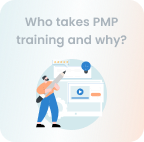






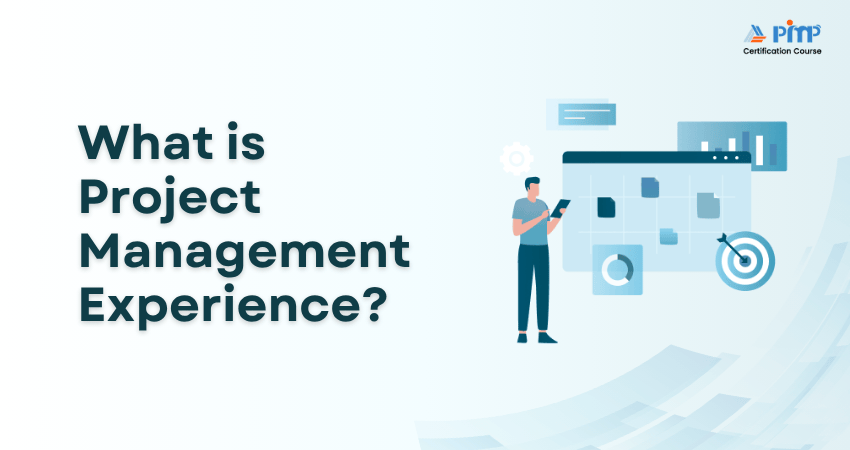


As a Project Manager, how do you get your foot in the door? You may already have more Project Management Experience than you realize, whether you're managing deadlines, leading a team, or just balancing tasks. The secret to developing your career is knowing how to identify and highlight this experience. We'll explain what matters, why it matters, and how to expand your skill set in this blog. Let's dissect everything so you can proceed with assurance.
Table of Contents
1) What is a Project Management Experience?
2) Why is Project Management Experience Important?
3) Key Components of Project Management Experience
4) Types of Project Management Experience
5) How to Gain Project Management Experience?
6) Real-world Examples of Project Management Experience
7) Conclusion
Project Management Experience refers to the hands-on skills and knowledge gained from planning, executing, and completing projects across different industries. It includes leading teams, managing resources, budgets, and timelines to achieve specific goals.
It also involves effective communication with stakeholders, handling risks, and adapting to changes in project scope. This experience demonstrates your ability to solve problems, guide cross-functional teams, and deliver results under pressure. Whether gained through formal roles or practical exposure, Project Management Experience is a valuable indicator of leadership, strategic thinking, and organisational skills that employers highly value.
Project Management Experience is important because it equips professionals with the ability to lead projects efficiently from start to finish. It ensures goals are achieved on time, within budget, and at expected quality levels. Experienced Project Managers can anticipate risks, manage resources smartly, and adapt to change.
They promote teamwork, maintain communication with stakeholders, and align project outcomes with business goals. This real-world experience builds decision-making, leadership, and problem-solving abilities. In today's fast-moving environment, organisations value Project Managers who can deliver results through strategic execution and innovation.
Gain Agile expertise with PMI-ACP® Certification and lead confidently – Register now!
Components of Project Management Experience include:
1) Project Planning: Defining scope, objectives, deliverables, and timelines.
2) Resource Management: Allocating and managing human, financial, and material resources.
3) Team Leadership: Leading cross-functional teams, resolving conflicts, and motivating members.
4) Budgeting and Cost Control: Estimating costs, managing budgets, and ensuring financial accountability.
5) Risk Management: Identifying potential risks, assessing impact, and implementing mitigation strategies.
6) Stakeholder Communication: Engaging stakeholders, managing expectations, and ensuring transparency.
7) Time Management: Scheduling tasks, setting milestones, and ensuring timely delivery.
8) Quality Assurance: Monitoring project outputs to meet standards and client expectations.
9) Change Management: Handling scope changes, adapting plans, and maintaining project alignment.
10) Project Closure: Finalizing deliverables, documenting lessons learned, and releasing resources.
Advance your leadership - Start your Program Management Professional (PgMP)® Certification now!
Project Management Experience isn’t limited to traditional Project Manager roles. Many professionals gain valuable skills through a wide range of responsibilities. Here are some common roles that contribute to practical Project Management Experience:
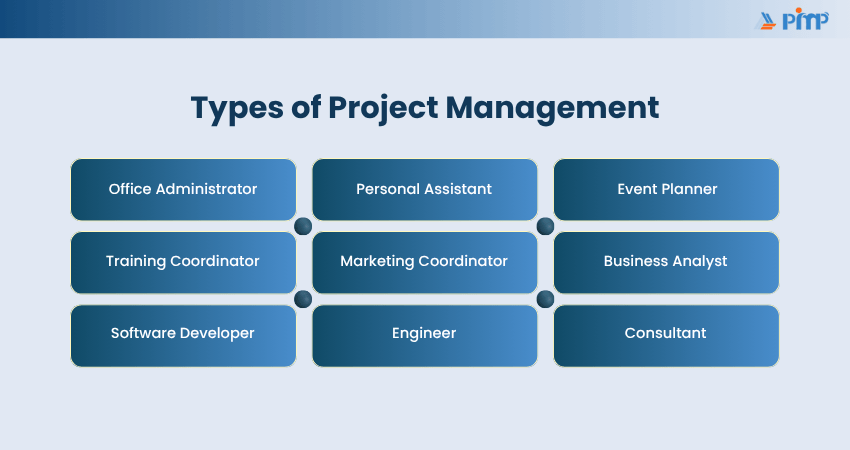
Office Administrators manage daily operations, schedule meetings, and support team coordination. These tasks require planning, time management, and resource allocation, all of which are fundamental Project Management skills.
Personal Assistants handle calendar organisation, travel planning, and stakeholder communication. Their ability to multitask, prioritise tasks, and manage logistics reflects strong coordination and execution skills.
Event Planners manage budgets, vendors, schedules, and logistics. Their work involves detailed planning, risk management, and real-time execution, aligning closely with project lifecycle management.
Training Coordinators design and deliver training programs, manage schedules, and monitor participation. They often collaborate across departments, ensuring that learning initiatives are completed on time and within scope.
Marketing Coordinators run campaigns, schedule content, and manage performance tracking. They engage in strategic planning, execution, and team coordination, mirroring typical Project Management phases.
Business Analysts gather requirements, analyse data, and facilitate communication between teams. Their role is crucial in defining project scope and ensuring alignment between technical outputs and business goals.
Software Developers often work in Agile environments, participate in sprints, and collaborate with cross-functional teams. Their experience in iterative development and solution delivery supports project execution and flexibility.
Engineers lead technical initiatives, manage timelines, and ensure quality standards. Their ability to design, plan, and implement solutions showcases structured thinking and delivery skills.
Consultants manage client-facing projects, develop strategies, and ensure deliverables meet expectations. Their work involves budgeting, stakeholder engagement, and performance evaluation, core elements of Project Management.
Building Project Management Experience doesn’t always require a formal title. With the right mindset and opportunities, you can grow these skills across different settings. Here are five effective ways to start:
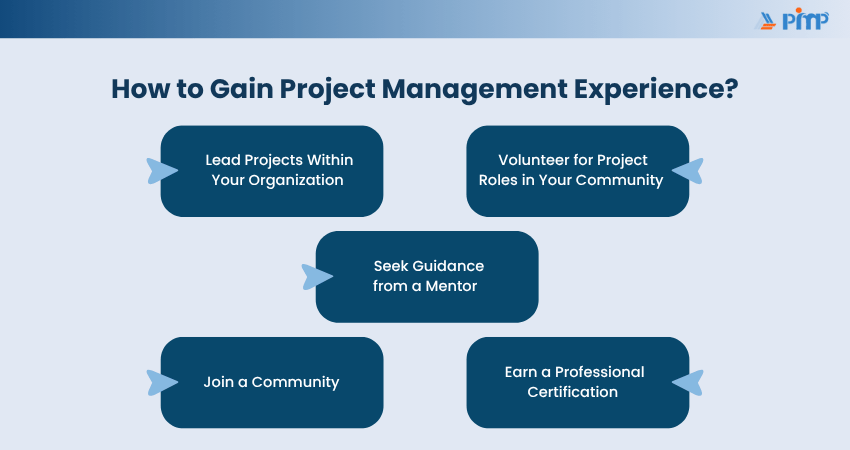
Show initiative by offering to oversee or help with internal projects. Whether it's launching a new tool, streamlining a workflow, or planning a team event, these experiences aid in the development of your leadership, coordination, and planning abilities.
Get involved in nonprofit or community initiatives like fundraisers, clean-up drives, or local events. These opportunities allow you to manage timelines, coordinate teams, and handle logistics, providing valuable Project Management Experience.
Find a mentor with Project Management Experience who can offer insights, feedback, and career advice. Learning from their real-world experiences can accelerate your growth and help you avoid common pitfalls.
Engage with Project Management communities online or locally. Platforms like PMI, LinkedIn groups, and local meetups offer networking, learning, and collaboration opportunities that can enhance your knowledge and visibility.
Certifications like Certified Associate in Project Management (CAPM) ® Training or PMP® Certification Training validate your skills and boost your credibility. They also provide structured learning and open doors to more advanced roles.
Lead enterprise portfolios strategically - Get Portfolio Management Professional (PfMP)® Certification and elevate your leadership impact.
Project Management Experience is demonstrated across a variety of industries and scenarios, each requiring planning, leadership, communication, and sharp risk management. Here are three real-world examples that illustrate the diversity and complexity of Project Management roles:
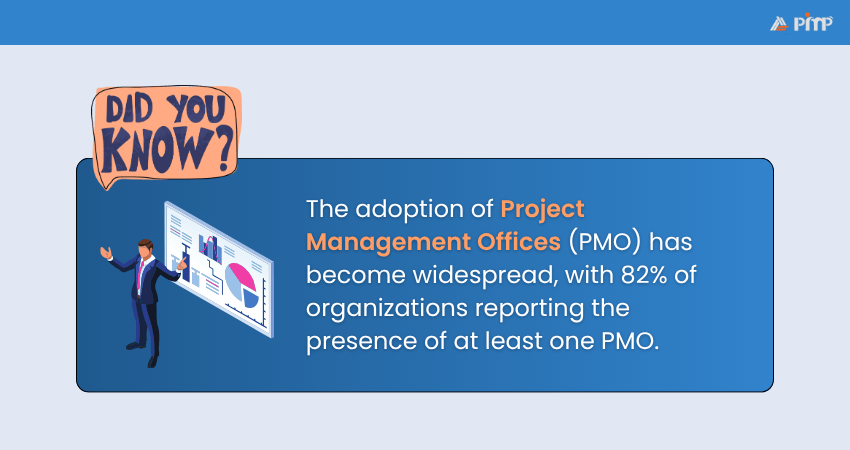
A company sets out to launch a nationwide marketing campaign for a new product. The Project Manager is responsible for overseeing the entire process from initial concept to post-campaign analysis.
Key Project Management Activities:
a) Project Planning: Worked closely with the marketing team to set clear goals, define the budget and timeline, and determine the campaign's target audience, main messages, and communication channels.
b) Team Leadership: Assigned tasks among copywriters, designers, and media buyers, ensuring regular check-ins to monitor progress and solve roadblocks swiftly.
c) Risk Management: Identified possible delays, such as slow creative approvals or advertising slot issues, and devised backup plans to keep the campaign on track.
d) Stakeholder Communication: Provided timely updates to senior management, collected feedback, and made strategic adjustments during the campaign.
e) Project Closure: Conducted a results review, compiled a comprehensive performance report, and presented lessons learned to improve future campaigns.
A construction company is tasked with managing the building of a new office facility. Here, Project Management plays a central role from concept to completion.
Key Project Management Activities:
a) Initiation and Planning: Conducted feasibility studies and worked with stakeholders to clarify project scope, resources, and requirements, ensuring alignment with safety and regulatory standards.
b) Preconstruction Planning: Developed detailed designs, initial estimates, risk assessments, and selected contractors through a structured bidding process.
c) Execution: Coordinated architects, engineers, and construction teams, kept the project on time and budget, and implemented careful quality control.
d) Risk Management: Identified challenges like supply delays or site issues, adapting plans as needed to maintain progress.
e) Project Closeout: Supervised final inspections, obtained necessary permits, handed over the building to the client, and documented lessons learned for future builds.
A large retail chain has decided to implement new inventory management software across all of its stores. The scale and complexity make Project Management skills invaluable.
Key Project Management Activities:
a) Project Scope and Planning: Defined project objectives, requirements, and a phased rollout plan. Selected software vendors and coordinated across departments for a smooth launch.
b) Pilot and Testing: Led a pilot rollout in select locations, gathered user feedback, and refined the deployment strategy based on real-world insights.
c) Training and Communication: Organized comprehensive training sessions for store managers and employees, ensuring everyone understood the system and felt supported.
d) Stakeholder Engagement: Maintained close communication with leadership, IT teams, and end users to monitor adoption and resolve issues.
e) Full Implementation and Monitoring: Oversaw the system’s company-wide deployment, tracked key performance metrics, and implemented continuous improvements after go-live.
Project Management Experience isn’t just about holding a formal title; it’s about the skills you build while leading, planning, and executing tasks effectively. By continuing to take initiative, seek feedback, and pursue new opportunities, you can keep growing in your role. With the right mindset and approach, this experience can become a powerful stepping stone in your career.
Become an agile expert - Earn your PMI-ACP® Certification and lead innovation today!






© Copyright 2025. All rights reserved. Contact: PMP® TRAINING ACADEMY.


